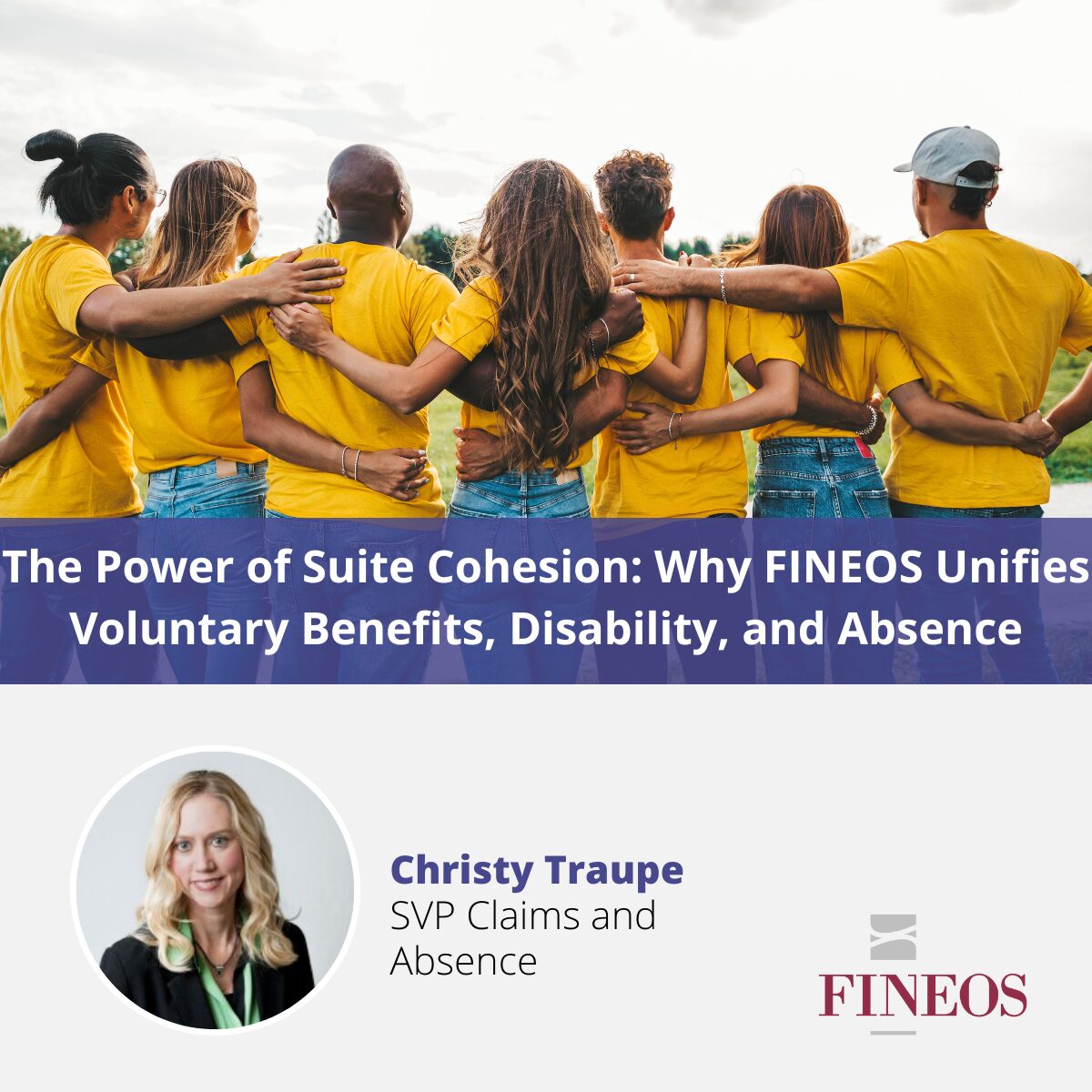During my 15-year tenure with FINEOS, I’ve been fortunate enough to have lived and worked in four countries: Ireland, Australia, New Zealand, and now the United States. As FINEOS provides core software solutions to the Life, Accident & Health industry, this experience has given me unique insights into how insurance companies in different cultures interact with their customer base.
For example, when I arrived in the United States, I was surprised by the internal focus of the insurers’ claims procedures for disability insurance. It was centred on providing a sense of security, reassuring customers that if the unexpected should happen, they’ll still receive a monthly income. But the longer-term challenge of how insurers help their customers to recover and eventually return to work is rarely addressed.
Don’t get me wrong, income protection is the foundation of any disability product. From my time in Australia, however, I have learnt that more and more insurers are focusing on treatment plans and services to help their customers return to work, or return to health, if working is not an option. One could look at this cynically and say, “Typical insurance companies, trying to cut back on the amount paid out.” Without doubt, there is a benefit to the bottom line if workers no longer need to claim because they’ve started earning again. As reported by Deloitte, “Typically, up to 80 percent of each earned premium dollar is ‘claimed by claims’ as pay-out and related expenses. Insurers that can reduce their claims costs by just one percentage point will likely achieve substantial savings.”[i]
But the assertion that insurance organizations should be actively helping their clients back to work is based on more than just cold economics. It’s grounded in what research has revealed about the shocking costs of long-term worklessness.
A few years ago, I had the great pleasure to meet Professor Sir Mansel Aylward, Director of the Centre for Psychosocial Research, Occupational and Physician Health, at Cardiff University School of Medicine, who was a guest speaker at the FINEOS Global Summit. In his presentation, he quoted some startling statistics about the effects of long-term worklessness.
Long-term worklessness is one of the greatest known risks to public health:
- Health risk = smoking 10 packs of cigarettes per day (Ross 1995)
- Risk of suicide in young men > 6 months out of work is increased 40 x (Wessely, 2004)
- Suicide rate in general increased 6x in longer-term worklessness (Bartley et al, 2005)
- Health risk and life expectancy impact greater than many “killer diseases” (Waddell & Aylward, 2005)
- Greater risk than most dangerous jobs (construction/North Sea oil worker) [ii]
We were all left a bit shell-shocked by this information, but it prompted us to try to understand more about the psychosocial influences on disability, illness and rehabilitation.
Our first discovery during the research phase was that if you are only looking at the medical factors, you are significantly limiting your ability to impact the estimated return to work date, or even identify the claims that will develop into long-term claims. As the chart below shows, medical factors account for only 10% of the negative influence on Return to Work.
Source: Professor Sir Mansel Aylward CB MD FRCP, Director: Centre for Psychosocial and Disability Research, Cardiff University and Chair: Public Health Wales
Nobody has cracked the nut of the influence of the psychosocial factors yet, but at FINEOS we believe we have created a set of tools that can help claim handlers proactively manage Return to Work initiatives. A combination of predictive analytics, (algorithms that look at medical, employment, claimant and claims team data), treatment plans, and proven intervention strategies can deliver a significant win/win for both client and insurer.
The evidence is provided by results: one FINEOS customer that embarked on this journey achieved a 10% increase in client satisfaction AND improved profit by 120%.
Some last words . . . this type of change doesn’t happen overnight. It requires insurance companies to rethink some well-honed strategies. But the scope of the likely gains makes the effort worthwhile: improved balance sheets for insurers and, more significantly, a workforce that is better able to fulfil its potential.
[i] Deloitte: https://www2.deloitte.com/ie/en/pages/operations/articles/operations-excellence-claims-management.html
[ii] Professor Sir Mansel Aylward CB MD FRCP, Director: Centre for Psychosocial and Disability Research, Cardiff University and Chair : Public Health Wales


